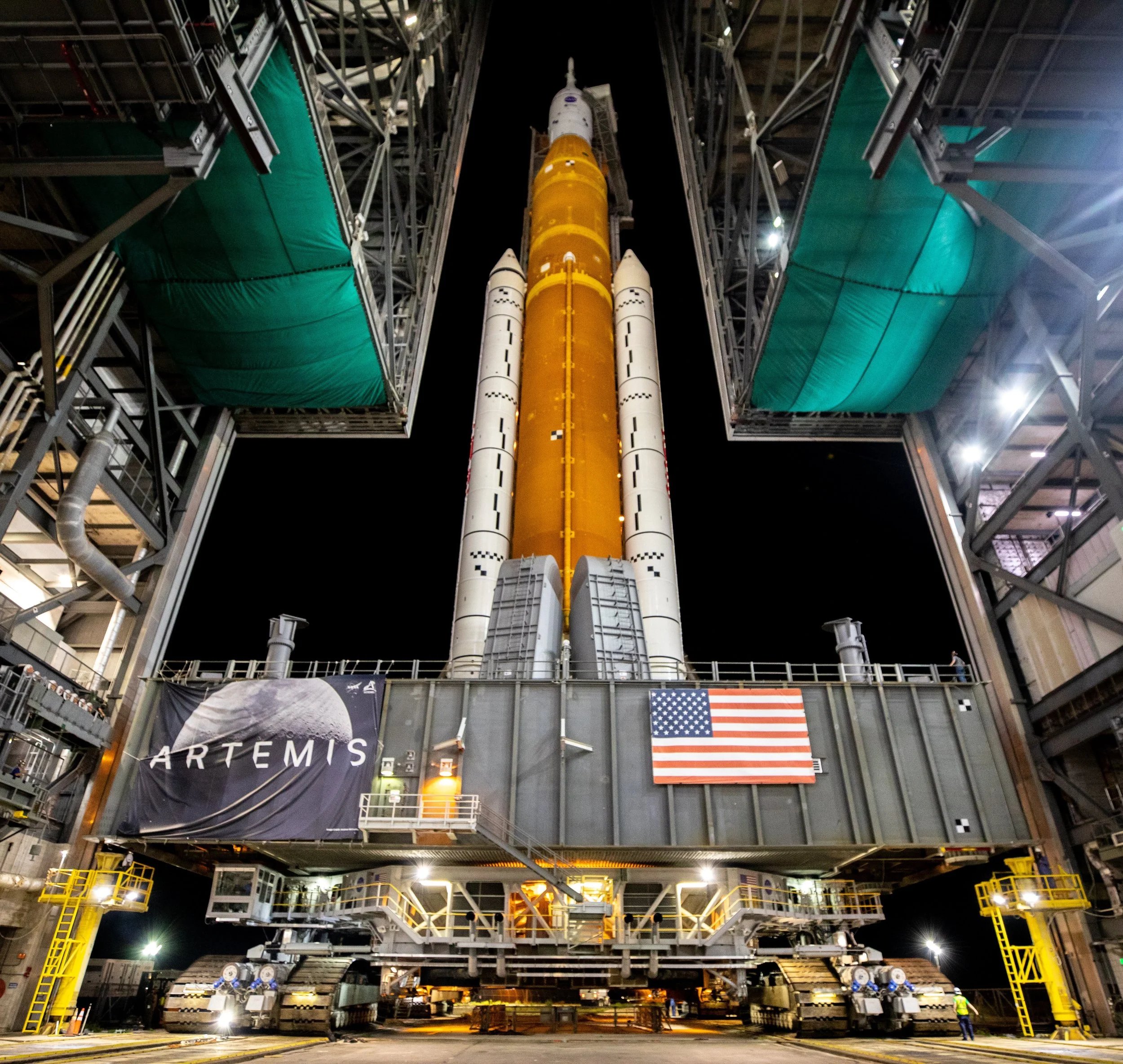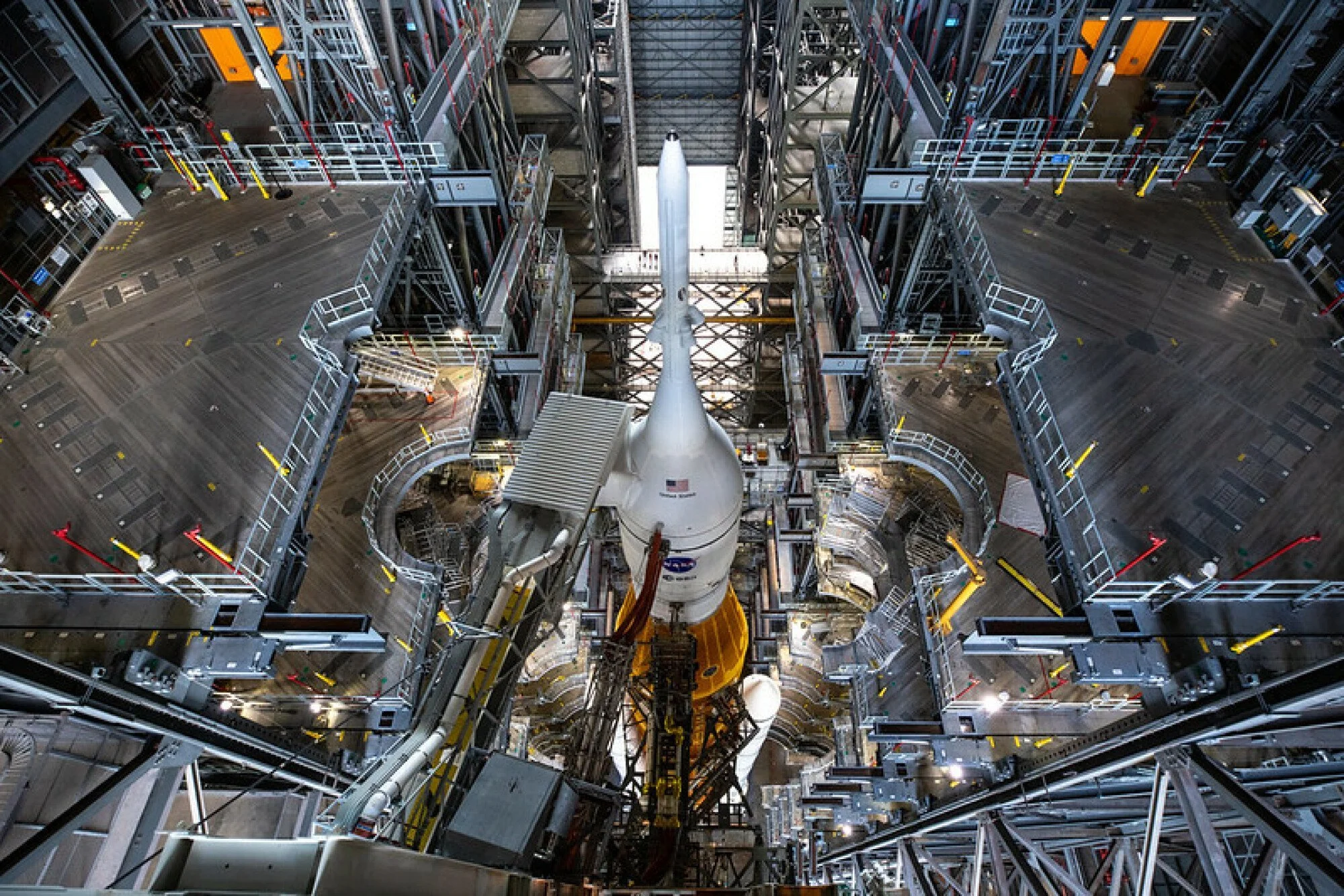Artemis 1 Mission Now Eyes Saturday Two-Hour Window Opening 2:17 pm ET | Bad Florida Weather Looms
/Artemis I Liftoff Rescheduled September 3
Artemis 1 Mission in now eyeing a Saturday, September 3 launch with a two-hour window opening at 2:17 pm ET. Bad weather is already looming, with only a 40% chance of liftoff. Weather problems currently look intermittent.
In 2021, NASA was able to fuel the rocket and then fire the four engines for their full eight-minute duration during a test at NASA’s Stennis Flight Center in Mississippi. The same routine did not work well on Monday.
John Honeycutt, NASA’s SLS program manager, said Tuesday NASA engineers were uncertain whether the temperature reading issues in the third engine — “totally out of bed” with the other three — were the result of a failure to cool the engine or a bad sensor not returning accurate information.
Honeycutt went on to make a statement that would cause a heart attack in any CEO of a project this large, this far behind schedule and over budget by a zillion dollars: “I’ve got confidence in the design of the rocket.”
Previously
Artemis I Mission Scrubbed Monday August 29
Stormy weather and troubleshooting to resolve an apparent hydrogen leak caused cancellation of Monday’s launch. 750,000 gallons of super-cold liquid oxygen and hydrogen fuel were loaded into the SLS core stage, clearing the way for another 22,000 gallons to be pumped into the upper stage.
The countdown resumed but an hour later the uncrewed Artemis I mission, including the Space Launch System Rocket and Orion spacecraft, liftoff from NASA's Kennedy Space Center in Florida on Monday morning, August 29 was scrubbed.
The next possible launch would be Friday, September 2 at 12:48pm ET. No official announcement has been made.
Josh Groban, Herbie Hancock, The Philadelphia Orchestra and Yo-Yo Ma Will Send Her Off — Fingers Crossed
One hopes that the launch will go successfully when it happens, and that for one moment millions of Americans can gather to celebrate the possible. There are no guarantees, however.
Orion's journey will last 42 days as it travels to the moon, whips around it and returns to Earth -- traveling a total of 1.3 million miles (2.1 million kilometers). The capsule was scheduled to splash down in the Pacific Ocean off the coast of San Diego on October 10. That date will also change once the Artemis 1 launch happens.
Lean Forward and Take Risks
The $4.1 billion mission is the first American moon mission since 1972, and it will act as a test flight with only three test dummies on board, and no humans.
Bob Cabana, associate administrator of NASA under NASA Administrator Sen. Bill Nelson and a veteran of four Space Shuttle flights, is trying to manage expectations around Artemis I.
Will the new heat shield withstand a searing 5,000 degrees?
"We are stressing Orion beyond what it was actually designed for, in preparation for sending it to the moon with a crew," said Cabana, last week. "And we want to make sure that it works absolutely perfectly when we do that."
Orion is the space capsule traveling on a 32-story rocket, and NASA intends to push it beyond every possible limit. With this mindset driving the mission, the team will take chances not possible with humans on board. One assumes that the dummy data will tell scientists if they lived or died.
On its return home, Orion will travel faster and hotter than any spacecraft ever, traveling at 24,500 mph in 5,000 degrees Fahrenheit. This temperature is half that of the surface of the moon, NASA administrator Bill Nelson, who also was an astronaut during the Space Shuttle era, returned to earth at 25 Mach, or about 17,500 miles per hour.
Artemis and Apollo
Artemis, named after Apollo's twin sister in Greek mythology, differs from Apollo in that NASA doesn't just want to visit the moon. NASA plans on staying, establishing a lunar-orbiting base, called the Gateway. The space race pressure is on, with China working on its own plans to send people to the moon.
To be continued . . . in this moment I share my favorite video — and we will also post the entire concert. ~ Anne
"Mythodea: Music for the NASA Mission: 2001 Mars Odyssey" is a choral symphony by the Greek electronic composer Vangelis performed at the Temple of Olympian Zeus in Athens on June 28, 2001. Mythodea was made the official theme music of the mission involving the NASA unmanned spacecraft orbiting the planet Mars.
































